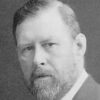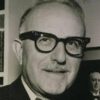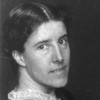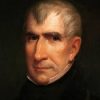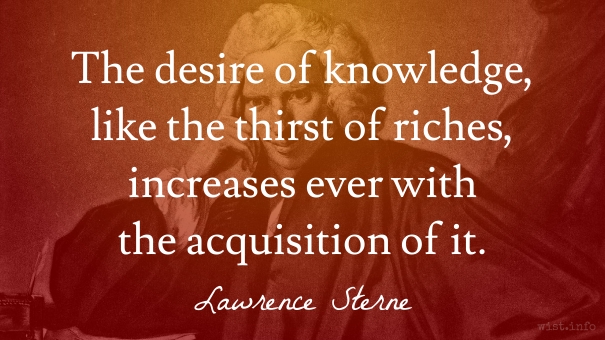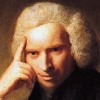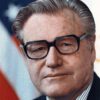Take then good note of it. Nothing is too small. I counsel you, put down in record even your doubts and surmises. Hereafter it may be of interest to you to see how true you guess. We learn from failure, not from success!
Abraham "Bram" Stoker (1847-1912) Irish author, theater manager, journalist
Dracula, ch. 10, Dr. Seward’s Diary, 7 September [Abraham Van Helsing] (1897)
(Source)
Quotations about:
investigation
Note not all quotations have been tagged, so Search may find additional quotes on this topic.
Truth gains more even by the errors of one who, with due study and preparation, thinks for himself, than by the true opinions of those who only hold them because they do not suffer themselves to think.
John Stuart Mill (1806-1873) English philosopher and economist
On Liberty, ch. 2 “Of the Liberty of Thought and Discussion” (1859)
(Source)
We do not protect freedom in order to indulge error. We protect freedom in order to discover truth. We do not maintain freedom in order to permit eccentricity to flourish; we maintain freedom in order that society may profit from criticism, even eccentric criticism. We do not encourage dissent for sentimental reasons; we encourage dissent because we cannot live without it.
Henry Steele Commager (1902-1998) American historian, writer, activist
“The Necessity of Freedom,” Freedom, Loyalty, Dissent (1954)
(Source)
An earlier version of the essay was given as "The Pragmatic Necessity for Freedom," Cooper Lecture, Swarthmore College (1951).
The biographer does not trust his witnesses, living or dead. He may drip with the milk of human kindness, believe everything that his wife and his friends and his children tell him, enjoy his neighbors and embrace the universe — but in the workshop he must be as ruthless as a board meeting smelling out embezzlement, as suspicious as a secret agent riding the Simplon-Orient Express, as cold-eyed as a pawnbroker viewing a leaky concertina. With no respect for human dignity, he plays off his witnesses one against the other, snoops for additional information to confront them with, probes their prejudices and their pride, checks their reliability against their self-interest, thinks the worst until he is permitted to think better.
Paul Murray Kendall (1911-1973) American academic and historian
“Walking the Boundaries,” The Art of Biography (1965)
(Source)
No matter what the belief, if it had modestly said, “This is our best thought, go on, think farther!” then we could have smoothly outgrown our early errors and long since have developed a religion such as would have kept pace with an advancing world. But we were made to believe and not allowed to think. We were told to obey, rather than to experiment and investigate.
No man holding a strong belief on one side of a question, or even wishing to hold a belief on one side, can investigate it with such fairness and completeness as if he were really in doubt and unbiased; so that the existence of a belief not founded on fair inquiry unfits a man for the performance of this necessary duty.
William Kingdon Clifford (1845-1879) English mathematician and philosopher
“The Ethics of Belief,” Part 1 “The Duty of Inquiry,” Contemporary Review (Jan 1877)
(Source)
Well, that’s my line of work. I go look at things and see what happens. If they were lying, maybe they will do some things because I went there today. Maybe they will make a mistake. The worst thing in any case is when nothing is happening. It’s like playing tennis: you just keep returning the ball until somebody makes a mistake. Then you see.
Murder investigations start with the victim because usually in the first instance that’s all you’ve got. The study of the victim is called victimology because everything sounds better with an ology tacked on the end. To make sure that you make a proper fist of this, the police have developed the world’s most useless mnemonic: 5 x WH & H. Otherwise known as Who? What? Where? When? Why? & How? Next time you watch a real murder investigation on the TV and you see a group of serious-looking detectives standing around talking, remember that what they’re actually doing is trying to work out what sodding order the mnemonic is supposed to go in. Once they’ve sorted that out the exhausted officers will retire to the nearest watering hole for a drink and a bit of a breather.
Not that indeed I imitated the sceptics, who only doubt for the sake of doubting, and pretend to be always uncertain; for, on the contrary, my design was only to provide myself with good ground for assurance, and to reject the quicksand and mud in order to find the rock or clay.
[Non que j’imitasse pour cela les sceptiques, qui ne doutent que pour douter, et affectent d’être toujours irrésolus; car, au contraire, tout mon dessein ne tendoit qu’à m’assurer, et à rejeter la terre mouvante et le sable pour trouver le roc ou l’argile.]
René Descartes (1596-1650) French philosopher, mathematician
Discourse on Method [Discours de la méthode], Part 3 (1637) [tr. Haldane & Ross (1911)]
(Source)
(Source (French)). Alternate translations:
Not that I therein imitated the Scepticks, who doubt onely to the end they may doubt, and affect to be always unresolved: For on the contrary, all my designe tended onely to fix my self, and to avoid quick-mires and sands, that I might finde rock and clay.
[tr. Newcombe ed. (1649)]
Not that in this I imitated the sceptics who doubt only that they may doubt, and seek nothing beyond uncertainty itself; for, on the contrary, my design was singly to find ground of assurance, and cast aside the loose earth and sand, that I might reach the rock or the clay.
[tr. Veitch (1901)]
For all that, I did not imitate the sceptics who doubt only for doubting's sake, and pretend to be always undecided; on the contrary, my whole intention was to arrive at a certainty, and to dig away the drift and the sand until I reached the rock or the clay beneath.
[tr. Huxley (1870)]
In doing this I was not copying the sceptics, who doubt only for the sake of doubting and pretend to be always undecided; on the contrary, my whole aim was to reach certainty -- to cast aside the loose earth and sand so as to come upon rock or clay.
[tr. Cottingham, Stoothoff (1985)]
Government has an obligation not to inhibit the collection and dissemination of news…. I’m convinced that if reporters should ever lose the right to protect the confidentiality of their sources then serious investigative reporting will simply dry up. The kind of resourceful, probing journalism that first exposed most of the serious scandals, corruption and injustice in our nation’s history would simply disappear …. And let me tell you, reading about one’s failings in the daily papers is one of the privileges of high office in this free country of ours.
Nelson Rockefeller (1908–1979) American politician
Speech to the Anti-Defamation League, Syracuse, NY (29 Nov 1972)
(Source)
The important thing is not to stop questioning. Curiosity has its own reason for existing. One cannot help but be in awe when he contemplates the mysteries of eternity, of life, of the marvelous structure of reality. It is enough if one tries merely to comprehend a little of this mystery every day.
Albert Einstein (1879-1955) German-American physicist
Memoirs of William Miller, quoted in Life (2 May 1955)
(Source)
We must trust the perfection of the creation so far, as to believe that whatever curiosity the order of things has awakened in our minds, the order of things can satisfy.
Ralph Waldo Emerson (1803-1882) American essayist, lecturer, poet
“Nature,” Introduction, Nature: Addresses and Lectures (1849)
(Source)

